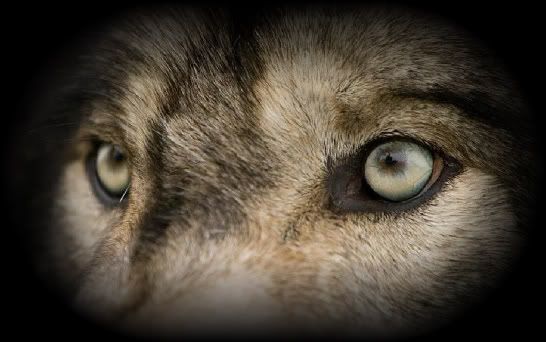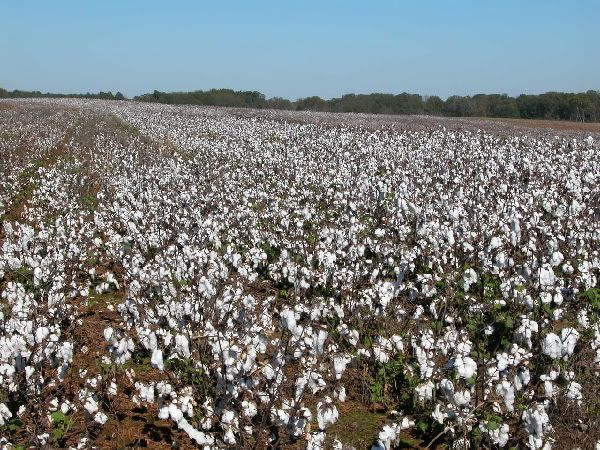


|
"I walked a mile with Pleasure, She chattered all the way; But left me none the wiser, For all she had to say. I walked a mile with Sorrow And ne'er a word said she; But, oh, the things I learned from her When Sorrow walked with me!"
- Robert Browning Hamilton

Sunday, March 23, 1958. Around five in the morning under the wan light of a setting new moon, in Polk General Hospital in Cedartown, Georgia, Bessie Beal has given birth to her only child. My life in the world has begun... it will be pretty much downhill from here.
My very first memory is of looking upward from the bottom of a grave-shaped box toward a muted light. I learn later that this was my "stroller". It was a crude wooden box with wheels at the front end, legs at the back, and a shopping-cart style handle. My paw made it and put on the wheels so that it would be (relatively) easy to push around in the fields, and the legs would prevent accidental rollaway. When we were in the fields, maw would cover the box with a big dish towel to protect me from the sun, while she was busy working. I was just over one year old.
I have many bits and pieces of memories from the next three years or so. There was a tree frog on the outside of a window pain which scared me because it looked like a hand.
On Friday, March 23, 1962, Time Magazine had a story about Jacqueline Kennedy and her visit to India, sailing down the Ganges and being called "Queen of America". JFK gave a speech at Berkeley that day. There were color televisions, luxury cars and all manner of nice things that rich folk had. I had no clue of the existence of most such people or places or things. Apart from seeing cars and tractors, etc., my daily life was little different than it would have been if the year were 1862 instead of 1962. It was my birthday. I turned four. Later that year I would earn my first dollar on my own as a working man.
Paw was a sharecropper. The big tractors had come and plowed and we were gettng ready to plant corn, okra, set out tomato plants, etc. in the little corner of the field reserved for us to grow our own veggies to use through the summer and can for winter. Soon the tractors would come back and plant the rest of the huge field with cotton for Mr. owens. Then we'd be REALLY busy, chopping cotton, hoeing cotton and then picking cotton, and grabbing a few daylight hours here and there to tend "our field". Of course it wasn't really "ours". All the land, the house we lived in (and paid rent on), and even some of the furnishings, belonged to a man my parents called Jimmy Owens. We lived in Kingston, Georgia. Mostly my world consisted of me and maw and paw. Sometimes maw would put me in a little red wagon and pull me down the road a quarter mile or so to the store with her. I would listen to the black and white men who were usually hanging around outside, some having a Nehi or an RC and a moon pie, talking about the weather or their cars or the field work.
Though I learned much later of such things, then I knew nothing of any "race problems". I knew only that, during cotton season people were loaded into trucks and hauled out to seemingly endless fields where we worked hard all day every day. This is where I learned to be wary of other kids. I saw them as stupid and potentially dangerous. Most of them played with each other at the ends of the fields, and took naps under the trees. I worked. I wanted to be next to maw and paw and I had my own hoe or picksack, depending on the time, and I usually had my own row to hoe, or pick, between maw and paw, or with someone else I trusted. I was always much more comfortable around most adults than other children. I didn't think of myself as a child. Sometimes the Georgia clay was already dried and very hard (thus the origin of the phrase, "hard row to hoe") and I got blisters quickly, even through the cotton gloves. I'd get paw's little pocket knife and poke a hole in the blisters to let the water out, then maw would would put salve on them and wrap an old rag strip tightly around my first knuckles to help protect my hands a little till I grew some calluses.
 One of my workplaces. I don't remember the circumstances of how it was that the word "nigger" first stuck in my memory, but I had heard it somewhere, and I remember asking a couple of women in the field what it meant. I remember them looking at each other and they both laughed and the white woman said, "We all niggers out here hunny, some of us white, some of us black", and the black woman was nodding her head and said, "Sho 'nuff". It was thus settled in my head that field hands were niggers regardless of their skin color. At four I understood that paw's "share" of the share cropping was the work and Mr. Owens's "share" was the money from the crops. I knew he let us live in the house he owned, that he would give paw some money for buying stuff we needed, and that he would take some of it back for letting us live in the house. We didn't have a car. Mr. Owens had a really nice car and several kinds and sizes of trucks and tractors and lived in a very big house. It didn't seem fair to me, but it was just the way it was. Cotton farming was still a pretty big thing in much of the south at the time, and mechanical pickers had not yet replaced a lot of field hands. This was just life to at that time. Around five in the morning, maw would be up making breakfast. Usually had biscuits, a fried egg and either some sausage, bacon or ham. Sometimes we had no meat and had to make do with just the biscuits and egg. We all had coffee with cream and sugar. Maw would often cut open a few biscuits, put butter and a spoon of sugar in them, and wrap them in paper for our dinner (lunch to Yankees). Paw would be rolling up our picksacks and filling our water jugs. It was usually still dark when the farm truck would stop on the road outside and we would go out and climb into the bed of it to be hauled to the fields. Maw was chunky and short, so she carried a wooden kitchen chair with her to step up on so she could make it into the truck. Black and white hands would reach down to give her an assist. Paw would hoist me up and those hands would reach for me and set me down in the truck and I'd go huddle up with maw when it was chilly. Some of the other women made use of the chair when we stopped to pick them up too. The sun usually made its appearance, either on the way to the fields or as we were climbing out of the truck, spreading our blankets and putting our water jugs at "our spot". After any who needed it had used maw's chair, she took it over and turned it upside down over our water jugs and put a big towel over it to keep the sun off as long as possible. Depending on whether we were choppin' or pickin', paw had our hoes or our sacks laid out and ready to use. It was usually mostly quiet in the fields while the sun began to heat us up. Except for some occasional low talk, the only sounds were the sounds of hoes chopping in the ground or of picksacks being dragged along. By dinner it was really hot and the straw boss would yell, "Dinner time!", and there would be a shuffling to the ends of the field, where we all had laid out our blankets and jugs. If there were one or more trees there, everyone naturally tried to find a spot in the shade, though shade was small and hard to find at noon. There were usually at least a couple dozen folks, roughly as many whites as black, sitting under the trees sharing bits of news and laughter and sometimes food trading. Sometimes paw might trade his buttered biscuits for a can of sardines and some crackers. If we were doing pretty well we might have some bolony (It took me a while to figure out that in stories I read which mentioned "bologna", they meant bolony) sammiches and some cold iced tea. Ocassionally someone would drag an icy RC or Nehi out of their water cooler and offer it to me. Of course I'd share with maw, and paw too if he wanted a swig. Sometimes there was a little snooze time afterward, seldom more than a half hour. Then it was back into the field. When we were chopping or hoeing it was earlier in the season and not quite as hot, but the cotton was little and you could see a lot of dirt everywhere. At picking time, it was a sea of white, as though there had been a summer snowstorm. Usually the plants didn't grow very high and this was a good thing for me because I didn't have to stoop much to pick. If the cotton was about chest high, or even head high to me, it was easy picking. It was a little rough at the beginning of picking season because the sharp prongs of the dried bolls would easily poke holes in your fingers and there were a lot of bloody fingers for a few days till you grew some calluses. By midafternoon it was often very hot and folks would be heading to the water jugs more often. Sometimes the women took off their bonnets and the men their hats and just stood for a couple minutes fanning themselves to cool down a little. For me, "high cotton" was a nightmare because when the stalks towered over my head it was sometimes hard to breathe in the summer stillness, with the sun beating down, raising the temperature near the ground to WAY above 100 degrees. The band Alabama had a song called High Cotton, in which there is a line that says, "We were walkin' in high cotton..." Well, that's one variation. Means basically that you are well off or have more. In my world the phrase was "shittin' in high cotton", and referred to one who seemed to think he was better than others. "He thinks he's shittin' in high cotton." It came from the fact that high cotton was a convenient place to take a dump in relative privacy, rather than having to run into the woods. Usually in such heat no one talked, saving their energy. The sounds were sacks dragging slowly along the ground, maybe a truck passing on a highway or an airplane droning overhead. And sometimes the almost deafening noise of hundreds of katydids. As the day wore on and the temperatures began to drop slightly sometimes we would hear the "old Negro spirituals" or gospel songs, as a bridge to get us to quittin' time. We might sing (yeah, I sang along too, as did most everyone else) "Swing Low, Sweet Chariot" or "Nobody Knows the Trouble I've Seen" or "I Saw the Light" or "I'll Fly Away". If it started to look like rain and a stiff wind started to blow, cooling things down considerably, we might do Leadbelly's "Pick a Bale of Cotton". I knew nothing of Leadbelly or Paul Robeson or Tennessee Ernie Ford or of the origins and histories of any of these songs. I knew only that they soothed a tired soul and distracted from the heat and other discomforts till quittin' time. During chopping time I would often find maypops growing at the ends of the fields. Maw said I shouldn't eat them and I didn't really care to, but they made a loud pop when you stepped on them. During picking time, often cockleburs (maw said kuckleburs) would grow right up at the edge of the field and you'd have to be careful to not get your britches or your sack full of them. Sometimes when I would start to get really tired and irritable in the heat, Dottie would tell me, "If Temy cain't pick no mo', get Robert goin'"(my middle name is Robert). Dottie was a black woman about my maw's age and size and she was my second maw in the field. Once I had gotten way ahead of maw and paw for some reason, and I got stung by a wasp. I screamed bloody murder. Dottie was close by and she grabbed me up and put some of her snuffspit on my arm where I was stung and told me it would make it feel better. It did too, even though Dottie dipped Dental and maw dipped Tops Sweet Snuff.
 Eventually an overseer would show up and yell, "Quittin' time!" and everyone would shuffle toward the end of the field for weighing the cotton and collecting the pay. Sometimes this was well after sundown and the lightening bugs were flashing all over. The going rate was usually "a dollar a hundred". If the crop was good, a strong man could pick 500-600 pounds in a day. That's how I earned my very first dollar. I had my own burlap blanket laid out and dumped my cotton on it at the end of the field. When it was weighed at the end of the day, I had a hundred pounds and I was really excited when the man gave me my own dollar bill and I stuck it down in my pocket. Then we would pile into the trucks again for the ride home. Sometimes I was so tired I went to sleep and maw had to wake me when we got home. If it was Saturday night and we didn't have to go to the fields tomorrow, and if we were doing pretty well, maw might fry some chicken and make some cornbread for supper. Otherwise it was mostly bolony or mater or cucumber sammiches.
Scrollbox Code from KillerKiwi.net
|
This is the some text Scrollbox Code from KillerKiwi.net
|

|
Scrollbox Code from KillerKiwi.net
|
stuff goes here................
///////////////////////////////////////////////////////////
Scrollbox Code from KillerKiwi.net
|